Fellows round 2019
In the eighth round of the Rosalind Franklin Fellowships (2019) the Faculty of Science and Engineering has appointed thirteen fellows. In the 2019 round, fellowships were offered in the fields of Science and Engineering in general, and in discipline specific fields. Below you will find a list of appointed fellows and a short bio of each fellow.
- Dr. Katarzyna Tych at the Groningen Biomolecular Sciences and Biotechnology Institute
- Dr. Sandy Schmidt at the Groningen Research Institute of Pharmacy
- Dr. Helle Hvid Hansen at the Bernoulli Institute for Mathematics, Computer Science and Artificial Intelligence
- Prof. Hannah Dugdale at the Groningen Institute for Evolutionary Life Sciences
- Dr. Zoé Christoff at the Bernoulli Institute for Mathematics, Computer Science and Artificial Intelligence
- Dr. Renata Raidou at the Bernoulli Institute for Mathematics, Computer Science and Artificial Intelligence
- Dr. Julia Kamenz at the Groningen Biomolecular Sciences and Biotechnology Institute
- Dr. Tessa Quax at the Groningen Biomolecular Sciences and Biotechnology Institute
- Dr. Cecília Salgado Guimarães da Silva at the Bernoulli Institute for Mathematics, Computer Science and Artificial Intelligence
- Dr. Jagoda Slawinska at the Zernike Institute for Advanced Materials
- Dr. Emanuela Dimastrogiovanni at the Van Swinderen Institute for Particle Physics and Gravity
- Dr. J. Xie at the Engineering and Technology Institute Groningen
- Dr. Elisabeth Wilhelm at the Engineering and Technology Institute Groningen
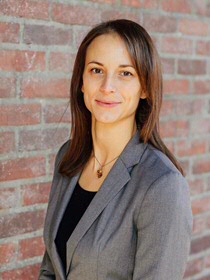
Dr. Katarzyna (Kasia) Tych
Dr. Katarzyna (Kasia) Tych studied electronic engineering at the University of Leeds, United Kingdom, completing her PhD in the same department in 2011. During her PhD, she developed methods to enable the use of terahertz time-domain spectroscopy for measurements of high frequency vibrational modes in proteins. During her postdoctoral position, working with Prof. Lorna Dougan and Dr. David Brockwell, she developed her passion for single molecule protein biophysics through her studies of proteins from extremophilic organisms using atomic force microscopy (AFM). She went on to receive a prestigious cross-disciplinary fellowship from the Human Frontier Science Program to study the heat shock protein 90 (Hsp90) chaperone system using optical tweezers in the laboratory of Prof. Matthias Rief at the Technical University of Munich, Germany. In 2020 she obtained a Rosalind Franklin tenure-track assistant professorship in single molecule biochemistry at the University of Groningen.
Her research involves single molecule characterisation of proteins using fluorescence and force spectroscopy by optical tweezers. In combination with structural work and biochemical studies, she intends to use single molecule techniques to gain an in-depth understanding of structure-function-dynamics relationships in proteins.
For more information, please visit http://ktsinglemolecule.com/
Dr. Tych is also on Twitter: @BiophysK
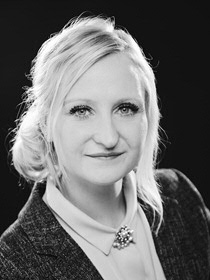
Dr. Sandy Schmidt
Dr. Sandy Schmidt completed her Ph.D. in 2015 in the group of Prof. Uwe Bornscheuer at the University of Greifswald in the field of protein engineering and enzymatic cascade reactions. After a research stay at Delft University of Technology as postdoctoral fellow within the group of Assoc. Prof. Dr. Frank Hollmann, she was working as a group leader at Graz University of Technology. Starting from April 2020 on, Dr. Schmidt has been Assist. Prof. and Rosalind Franklin Fellow at Rijksuniversiteit Groningen within the Groningen Research Institute of Pharmacy. Research in the Schmidt lab exploits the powerful reactivity and selectivity of enzymes from secondary metabolite pathways for the production of natural products and their analogs for pharmaceutical applications. The two main lines of research are (1) the design and assembly of synthetic metabolic pathways and (chemo)enzymatic cascades for biocatalytic applications using synthetic biology tools; and (2) the development of new concepts for electron transfer pathways in microorganisms.
For more information, please visit https://www.rug.nl/staff/s.schmidt/
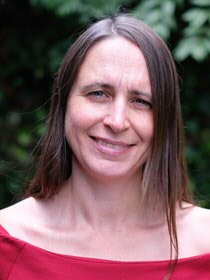
Prof. Hannah Dugdale
Prof. Hannah Dugdale is an evolutionary biologist at the Groningen Institute for Evolutionary Life Sciences. She gained her undergraduate degree in Zoology from the University of Cambridge, and then a MSc in Biology and a DPhil on the evolution of social behaviour at the University of Oxford. After a post-doc at the University of Sheffield, she was awarded a Rubicon fellowship and NWO visitor’s grant at the University of Groningen, and a prestigious NERC fellowship at the University of Sheffield. She was then an Associate Professor in Conservation Biology at the University of Leeds before moving to the University of Groningen as a Professor in Evolutionary Medicine. Her research group investigates evolutionary dynamics of behavioural and life-history traits in human and natural animal populations, focusing on the evolution of ageing.
For more information, please visit https://www.rug.nl/staff/h.l.dugdale/
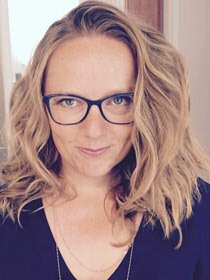
Dr. Zoé Christoff
Dr. Zoé Christoff is assistant professor at the Department of Artificial Intelligence, as a member of the Multi-Agent Systems group. Her interdisciplinary work applies formal tools to investigate how social networks affect opinion formation, truth tracking, and decision making. Since starting her Rosalind Franklin Fellowship, she has been awarded a VENI personal grant from the Dutch Research Council (NWO) for her project "Social Networks and Democracy".
Until August 2020, she was a postdoctoral researcher, first at the Department of Computer Science of the University of Liverpool, and then at the Philosophy Department of the University of Bayreuth. She received her PhD from the Institute for Logic, Language, & Computation of the University of Amsterdam in 2016. Her dissertation "Dynamic Logics of Networks - Information Flow and the Spread of Opinion" develops logical tools to model social informational phenomena such as informational cascades and diffusion in social networks.
For more information, please visit https://zoechristoff.com/
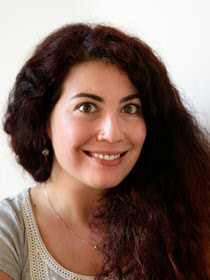
Dr. Renata Raidou
Dr. Renata Raidou received her M.Sc. degree in Biomedical Engineering from Delft University of Technology in 2012, and her Ph.D. degree from Eindhoven University of Technology in 2017. The topic of her dissertation was 'Visual Analytics for Digital Radiotherapy: Towards a Comprehensible Pipeline', for which she received the Dirk Bartz Prize for Visual Computing in Medicine at Eurographics 2017, and the Best PhD Award 2018 of the Eurographics Awards Programme. Until September 2020, she has been a Post-Doc researcher at the Institute for Visual Computing and Human-Centered Technology at TU Wien. Currently, she is Assistant Professor (Tenure Track) at the Bernoulli Institute at the University of Groningen. Her research is on the interface between Visual Analytics, Image Processing and Machine Learning, with a strong focus on medical applications. Her expertise is in Comparative Visual Analytics and Uncertainty Visualization.
For more information, please visit https://renataraidou.com/
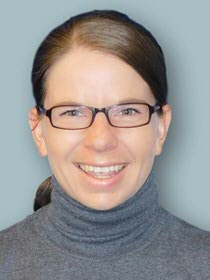
Dr. Julia Kamenz
Already during her undergraduate studies in Biochemistry in Tübingen, Germany, Dr. Julia Kamenz became intrigued by the complexity of the regulatory networks surveying cell cycle progression and cell division. Her PhD in the laboratory of Dr. Silke Hauf at the Friedrich Miescher Laboratory of the Max Planck Society investigated how events during the metaphase to anaphase transition are coordinated in time to ensure faithful chromosome segregation. She received a fellowship of the Boehringer Ingelheim Fonds for this project and defended her PhD thesis in 2015 with highest honors.
For her postdoctoral work, Dr. Julia Kamenz joined the group of Prof. James E. Ferrell at Stanford University, where she continued to investigate the molecular mechanisms of cell cycle transitions – particularly the G2/M transition and mitotic exit – by combining experimental, biochemical approaches with computational modeling. Her work in Stanford was supported by a Postdoctoral Fellowship from the German Research Foundation (DFG).
At the University of Groningen, her research will focus on the intricate regulation of kinases and phosphatases during cell proliferation and cell division and how these enzymes regulate the function and activity of proteins essential for cell cycle progression.
For more information, please visit https://www.rug.nl/staff/j.l.kamenz/
Dr. Kamenz is also on Twitter: @KamenzLab
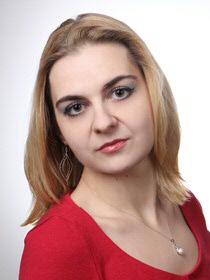
Dr. Jagoda Sławińska
Dr. Jagoda Sławińska obtained her MSc. (2008) and PhD (2012) degrees in Physics from University of Łódź (Poland). Her doctoral dissertation ‘Electronic properties of graphene-based interfaces’ received a prestigious Prime Minister Award in 2013. Afterwards, she conducted postdoctoral research in Spanish National Research Council (ICMM-CSIC, 2013-2016), Italian National Research Council (CNR-SPIN, 2016-2018) and University of North Texas (Department of Physics, 2018-2020). In September 2020, she started a Rosalind Franklin Fellowship in Theory of Condensed Matter at the University of Groningen. Her scientific interests are focused on computational materials science, aiming at modeling, design and understanding of novel quantum materials for nanoelectronics and spintronics. A large part of her research is strongly linked to experimental investigations performed by the collaborators throughout the world.
For more information, please visit https://www.rug.nl/staff/jagoda.slawinska/
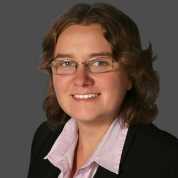
Dr. Elisabeth Wilhelm
Elisabeth Wilhelm received her diploma and her doctoral degree (2015) in mechanical engineering from the Karlsruhe Institute of Technology in Germany. From 2015 to 2016, she worked as visiting researcher in the Human Robotics Group at Imperial College London. Afterwards she joined the Sensory-Motor Systems lab at ETH Zürich as postdoctoral researcher. Since September 2020 she is appointed as Rosalind Franklin Fellow (assistant professor) in the group Discrete Technology & Production Automation (DTPA), at the Engineering and Technology Institute Groningen (ENTEG) of the Faculty of Science and Engineering.
Her research focuses on robotics for rehabilitation and assistive devices, artificial sensory stimulation, real-time bio-feedback and human-machine interaction.
For more information visit her website at
https://www.rug.nl/staff/e.wilhelm/research
.
| Last modified: | 04 July 2022 11.11 a.m. |
